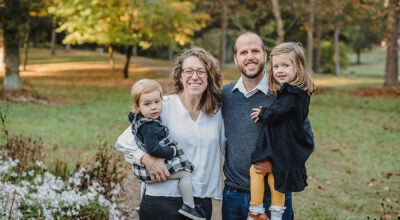Rowan County Board of Elections establish one-stop voting plan for general election
Published 12:05 am Tuesday, August 9, 2022
SALISBURY — The Rowan County Board of Elections met Monday afternoon and unanimously approved the one-stop voting plan for the general election coming up in October.
The board had three plans to choose from in the agenda packet that all included state-mandated voting times, 8 a.m. to 7:30 p.m. Monday through Friday, Oct. 20 through Nov. 4, and then 1 to 5 p.m. that Saturday, Nov. 5.
The following were presented to the board as voting options:
-Plan A – State mandated days/hours – Beginning Thursday, Oct. 20 and ending Saturday, Nov. 5; Monday through Friday – 8 a.m. to 7:30 p.m. Saturday, Nov. 5 – 8 a.m. to 3 p.m.
-Plan B – State mandated days/hours plus – One additional Saturday, Oct. 22 – 8 a.m. to 3 p.m. and one Sunday, Oct. 23 – 1 to 5 p.m.
-Plan C – State mandated days/hours plus – Two additional Saturdays, Oct. 22 and 29 – 8 a.m. to 3 p.m. and two Sundays, Oct. 23 and 30 – 1 to 5 p.m.
The members were split at the first half of the discussion after hearing from community members during public comments about weekend voting opportunities. There was an even debate amongst those attending the meeting, but each expressed concerns that were split between one-stop voting plans.
The first individual signed up to speak brought up the North Carolina Board website that states “Thursday, Oct. 20, 2022, begins the 17-day one-stop early voting period for the 2022 statewide general election, which ends at 3 p.m., Saturday, Nov. 5, 2022. During the early voting period, voters may cast a ballot at any one-stop site in their county.”
“If our Rowan board does not include all Sundays and Saturdays to create 17 consecutive days within that voting period, this statement becomes confusing to a voting public that may not be as engaged in the details of days and times as those of us who have the time to appear together today to advocate for all voters,” she said.
A voter opposed to the voting expansion said it would be stressful to the system and to poll watchers and workers. Additionally, it would create more opportunities for unlawful activity to occur due to staff limitations.
Others expressed importance for elderly and disabled individuals who relied on others for transport and understanding the voting process. A self-proclaimed senior commented to the board that often, members of she and others in the disabled community use weekends to get the assistance they need.
Geoffery Hoy, chairman of the Rowan County Democratic Party, said it is especially important this voting period to offer voting availability because of the “issues on the table this elections.” Offering a broader schedule would be utilizing funds to ensure every individual can exercise their right to vote.
A voter opposed to the voting expansion said it would be stressful to the system and to poll watchers and workers. Additionally, it would cause more opportunities for unlawful activity to occur due to staff limitations.
Rowan County Republican Party Chairwoman Elaine Hewitt brought up the importance of workers needing rest during one-stop voting to ensure a reduction of risks when it comes to errors at the polls.
Board member Dwight Collins proposed an adaptation for Plan B that would run the state-mandated schedule by removing Oct. 22 from the days to vote.
Secretary Catrelia Hunter favored Plan C as it would accommodate all voters. She, chairman John Hudson and board member George Bension voted to approve Plan C, but Collins and Loutricia Cain wanted to weigh more options.
Hunter said she would be more inclined to approve Plan B as stated in the agenda over Collins’ proposed plan. The remainder of the board agreed and Collins also accepted the original second option. Therefore Plan B was finally approved.
In other business:
• During public comment, a poll observer from this year’s primary election raised the concern of incorrect information from an article by the Post on May 5 which stated that poll observers had been reported as intimidating to voters at the sites. Due to attending virtually for COVID-19 precautions, the concern was reported incorrectly as the sound was not clear. The information should have been followed up after the meeting to ensure clarification and the Post apologizes for the misinformation.
The concern that was originally brought up to the board of elections in the May meeting was about electioneers and greeters working for candidates.
The community member said poll observers need to be in a close enough range to hear a voter present their name and address to ensure they are not prompted or fed any information at the registration table. Otherwise, observers are not to view confidential voter information, observe markings on ballots or interfere with the voting process.





